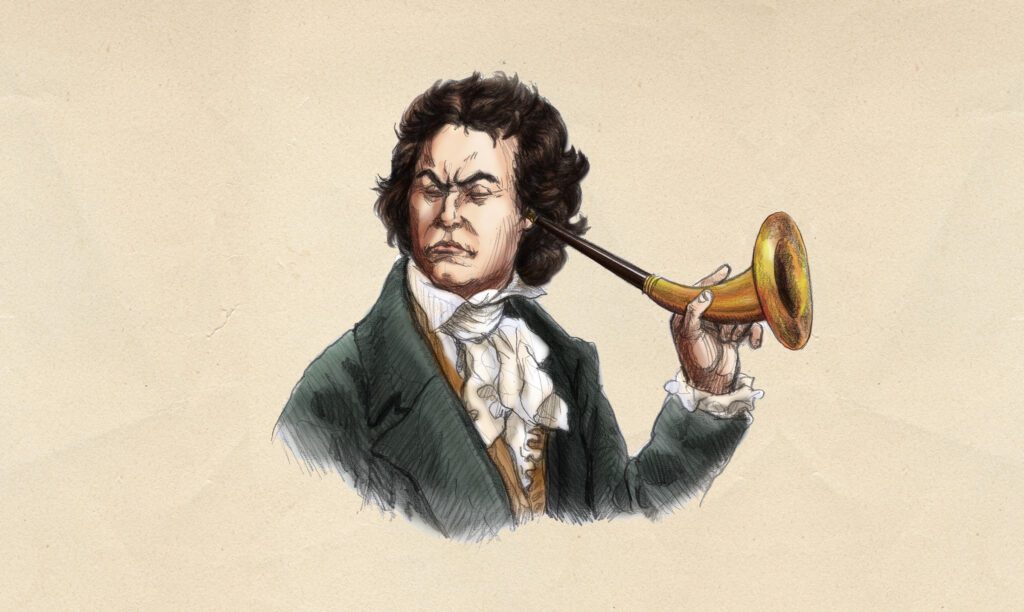Ludwig van Beethoven, one of the most influential figures in the history of classical music, was born in Bonn, Germany, on December 17, 1770. His exact date of birth remains a subject of debate, but his baptismal record confirms this date. Beethoven’s early life was marked by adversity, as he was born into a family of limited means. His father, Johann van Beethoven, was a court musician in Bonn, and he recognized his son’s musical talent at an early age.
Beethoven received his first music lessons from his father, who hoped to mold him into a child prodigy like Mozart. However, Beethoven’s childhood was far from idyllic. His father was a harsh and often abusive teacher, subjecting him to intense practice sessions and discipline. Despite this, Beethoven’s talent continued to blossom, and by the age of 12, he was earning money as a keyboard virtuoso and improviser.
In 1787, Beethoven traveled to Vienna, the musical capital of Europe, to study with the renowned composer Joseph Haydn. Under Haydn’s guidance, Beethoven honed his compositional skills and began to establish himself as a promising young musician. He quickly gained a reputation as a brilliant pianist and composer, attracting the attention of Vienna’s aristocratic patrons.
Beethoven’s early compositions, influenced by the classical style of Mozart and Haydn, were well-received by audiences and critics alike. However, as he matured as a composer, Beethoven began to push the boundaries of musical expression, experimenting with form, structure, and emotional depth. His compositions became more innovative and daring, earning him a reputation as a radical and visionary artist.
Despite his growing success, Beethoven’s personal life was fraught with turmoil. He struggled with hearing loss from a young age, a condition that would eventually lead to profound deafness. Beethoven’s hearing loss worsened over time, forcing him to withdraw from public performance and rely increasingly on written communication.
Despite his deafness, Beethoven continued to compose some of his most iconic works, including his nine symphonies, five piano concertos, and numerous chamber and vocal compositions. His music transcended the boundaries of his time, bridging the gap between the classical and romantic eras and inspiring generations of composers to come.
Beethoven’s legacy extends far beyond his music. He was a staunch advocate for human rights and individual freedom, and his music often reflected his political and philosophical beliefs. Beethoven’s Ninth Symphony, with its famous “Ode to Joy” chorus, has become an anthem of universal brotherhood and solidarity.
Ludwig van Beethoven passed away on March 26, 1827, at the age of 56, after a long and prolific career. His music continues to be performed and celebrated around the world, a testament to his enduring genius and profound impact on the world of music. Beethoven’s legacy as a composer and innovator remains unrivaled, ensuring that his name will be remembered for generations to come.


Comments are closed